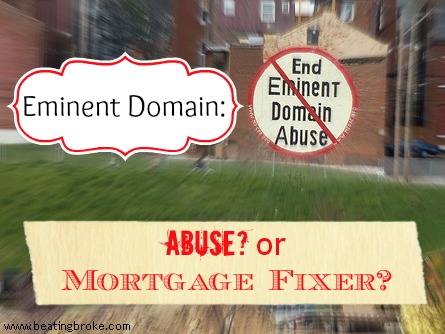 Everybody knows that you want to have the best credit score you can. Why? Because the better your credit score, the better the rates you can get on your loans, of course! But, did you know that there are other reasons to try and improve your credit score? In fact, here’s five ways that having a better credit score can lead to better finances.
Everybody knows that you want to have the best credit score you can. Why? Because the better your credit score, the better the rates you can get on your loans, of course! But, did you know that there are other reasons to try and improve your credit score? In fact, here’s five ways that having a better credit score can lead to better finances.
- More money. This is the obvious one. A better credit score leads to better rates on loans (see above), and better rates lead to less interest paid over the life of the loan. And less interest paid leads to… (wait for it) a better bank balance!
- Better rentals. It’s a sad fact that many landlords are doing credit checks on prospective tenants these days. They’ve got assets to protect, so it’s a smart move for them, but the fact that there are so many landlords out there getting burned that it’s become necessary is sad. But, having a good credit score can help make sure you don’t get turned down for that great apartment down by the beach!
- Quicker payoff. This one goes really closely with the first point. With those lower rates, and lessened interest also comes the ability to pay the loan off quicker. And, of course, a quicker payoff means a much better financial situation. Especially if you avoid any new loans afterward.
- Any loan you like. If you must loan money, at least do it smartly. With the current state of affairs, you can’t just walk in and get a loan that has a pulse as it’s only requirement. In fact, many banks and credit unions are cutting way back on their sub-prime lending for anything. (P.S. the term “sub-prime” doesn’t just apply to mortgage loans) If you have poor credit, it’s much more likely, today, that you’ll get turned down for a loan altogether. Better credit means that if you really need a loan, you probably can have one.
- Less fees. We all hate fees. Well, all of us except the financial institutions. A growing number of them are making a growing amount of their revenues from fees. And many have moved to an account structure that is based off of risk. And risk is determined by credit score. A lower credit score could mean an account with higher fees, or with monthly fees that some accounts might not have, while a higher credit score might qualify you for a different account without those fees.
So, you see, having a good credit score can really send your finances in the right direction. And, having a bad credit score can really send them into the dumps in a hurry too! Unless you’re very dedicated to the extreme frugaler lifestyle, and never plan on really using money, it still pays to have a good credit score. It doesn’t take much to build it, and you might be glad you did someday.
photo credit: o5com

Shane Ede is a business teacher and personal finance blogger. He holds dual Bachelors degrees in education and computer sciences, as well as a Masters Degree in educational technology. Shane is passionate about personal finance, literacy and helping others master their money. When he isn’t enjoying live music, Shane likes spending time with family, barbeque and meteorology.

